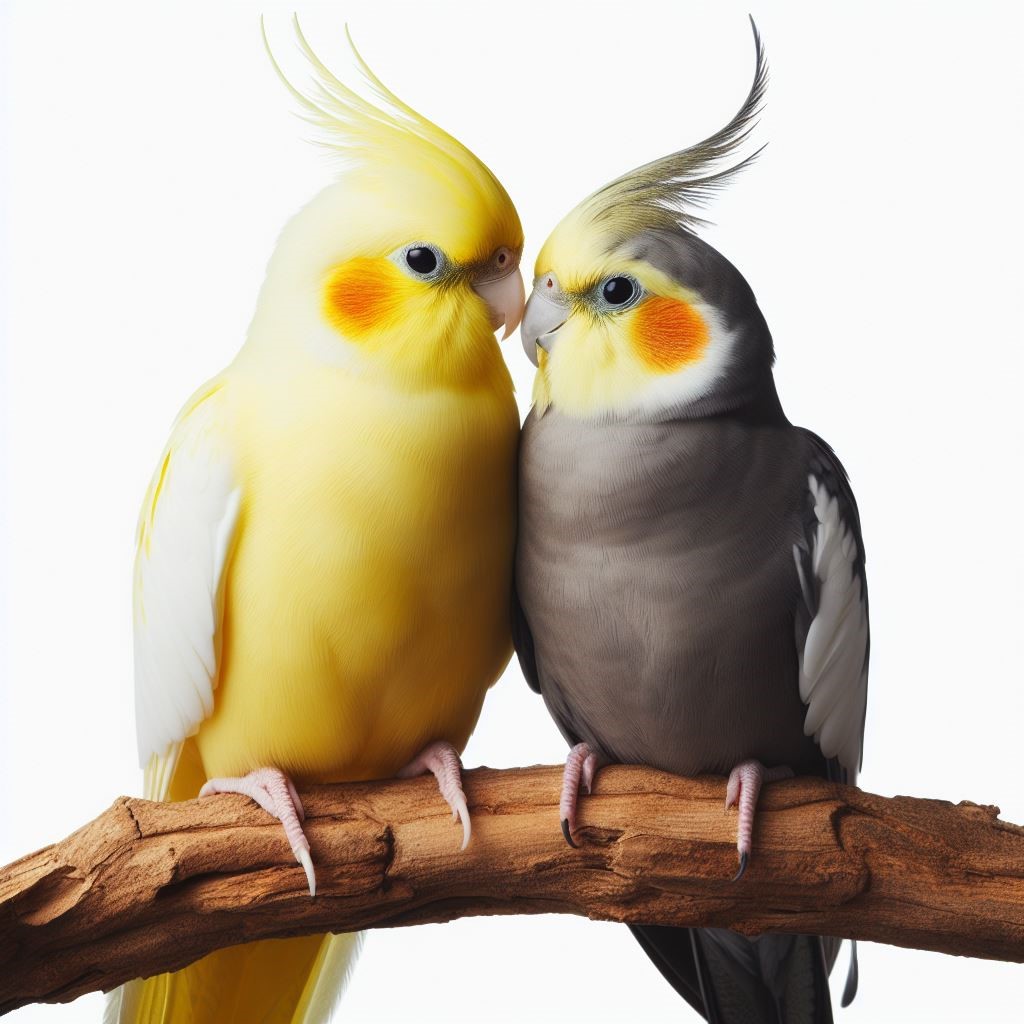Cockatiels are beloved members of the parrot family, renowned for their charming personalities and delightful antics. These small, intelligent birds make fantastic pets, bringing joy and companionship to countless households around the world. In this article, we’ll explore the fascinating world of cockatiels, from their origins and physical characteristics to their behavior, diet, and care requirements.

What is a Cockatiel?
Cockatiels (Nymphicus hollandicus) are native to Australia and belong to the parrot family. They are known for their distinctive appearance, characterized by a crest that they can raise or lower depending on their mood. These birds are highly social and thrive on interaction with their human companions.
History of Cockatiels
Cockatiels have a long history of companionship with humans, dating back to ancient times. They were first brought to Europe in the 19th century and quickly became popular pets due to their friendly nature and ability to mimic sounds.
Physical Features
Cockatiels are small birds, measuring about 12 to 14 inches in length from beak to tail. They come in a variety of colors, including gray, white, and yellow, with distinctive orange cheek patches. Male cockatiels typically have brighter colors and a more pronounced crest than females.
Behavior and Temperament
One of the most endearing qualities of cockatiels is their playful and affectionate nature. They are known for their curious personalities and love to explore their surroundings. Cockatiels are also highly social birds and enjoy interacting with their human family members.
Diet and Nutrition
A balanced diet is essential for the health and well-being of cockatiels. In the wild, they feed on a variety of seeds, fruits, and vegetation. In captivity, it’s important to provide them with a high-quality pellet mix supplemented with fresh fruits and vegetables.
Housing and Environment
Cockatiels are active birds that require plenty of space to move around. A spacious cage with perches and toys for mental stimulation is essential. They also thrive in a warm, draft-free environment with access to natural light.
Cockatiel Sounds and Their Meanings
Training Tips
Cockatiels are intelligent birds that can be trained to perform various tricks and behaviors. Positive reinforcement techniques, such as offering treats and praise, are effective in teaching them new skills. Consistency and patience are key when training cockatiels.
Common Health Issues
Like all pets, cockatiels are susceptible to certain health problems. These include respiratory issues, feather picking, and obesity. Regular veterinary check-ups and a healthy diet can help prevent these issues.
How to take care of a cockatiel
Interaction and Bonding
Building a strong bond with your cockatiel is crucial for their well-being. Spend time interacting with them daily, offering treats, and talking to them in a gentle voice. Cockatiels thrive on attention and affection from their human companions.
Conclusion
In conclusion, cockatiels are delightful pets that bring joy and companionship to any household. Their playful nature, charming personalities, and ability to mimic sounds make them a favorite among bird enthusiasts. With proper care and attention, cockatiels can live long and happy lives as cherished members of the family.
FAQs
Q1: Are cockatiels noisy?
A1: Cockatiels are not as loud as some other parrot species, but they can be noisy, especially during the morning and evening hours. Providing them with plenty of toys and attention can help minimize excessive noise.
Q2: How long do cockatiels live?
A2: With proper care, cockatiels can live for 15 to 20 years or even longer. Providing them with a healthy diet, regular veterinary check-ups, and a stimulating environment can help prolong their lifespan.
Q3: Do cockatiels require companionship?
A3: Cockatiels are social birds that thrive on interaction with their human companions. While they can be kept alone, they generally do better in pairs or small groups.
Q4: Can cockatiels be potty trained?
A4: Yes, cockatiels can be potty trained to some extent. Providing them with a designated area in their cage for elimination and rewarding them for using it can help encourage good potty habits.
Q5: Do cockatiels need to be groomed?
A5: Cockatiels are generally good at grooming themselves, but they may require occasional baths to keep their feathers clean and healthy. Providing them with a shallow dish of water for bathing can help meet this need.
By following these tips, you can ensure that your cockatiel remains healthy, happy, and well-adjusted in its new home.






